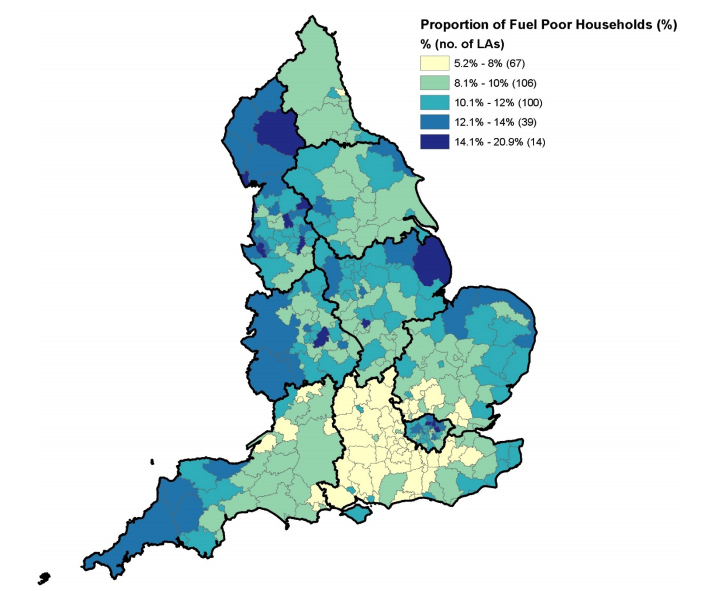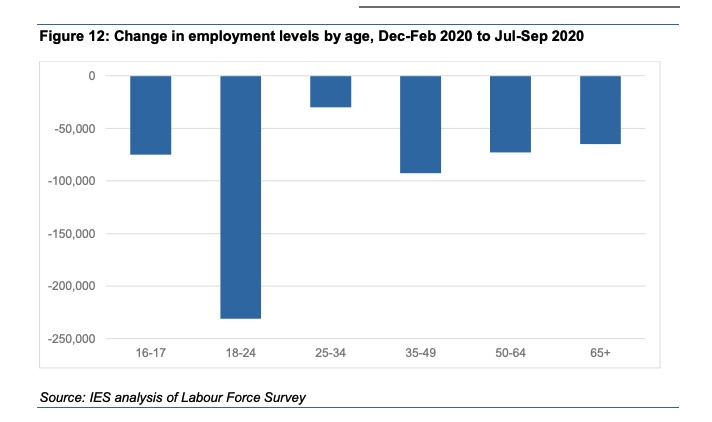Today is #FuelPovertyAwarenessDay, in one of the most testing years for those already struggling to pay their bills. @NEA_UKCharity (1/8) [THREAD]
1 in 5 young people and about 2.4m households live in fuel poverty (England 2018). This has increased by 210,000 from 2014 to 2018 and is thought to be attributable to at least 10,000 deaths per year. It’s most common in the North and Midlands. (2/8)
@CAenergypolicy report that on average, 1 in 9 people have fallen behind on bills due to coronavirus ( https://buff.ly/3ldrm4L ). This is no surprise; in the first lockdown, they also reported that 1 in 10 families were struggling with bills. But this need not be the case. (3/8)
Families locked down in the leakiest homes will pay more over lockdown – an extra £49 per month than those living in better insulated, warmer homes. Cutting energy waste by upgrading our homes will put £ back into wallets of families that need it https://buff.ly/2LRqNwI (4/8)
In July @ECIU_UK reported areas with high fuel poverty generally also have high unemployment; often red wall seats ripe for levelling up. (Note: figures from summer; now unemployment likely higher). Connecting the two delivers jobs and warmer homes. https://buff.ly/2ZSVQii (5/8)
These jobs could be in huge numbers. @CommonsBEIS estimates up to 86,000 jobs could be created across all UK regions, if energy efficiency investments were increased. This could also have net benefits worth £7.5 billion GVA. (6/8)
Also, younger people are more likely to have been hit by covid unemployment. Yet two thirds of 18-24 year olds are interested in the green economy and could benefit from millions of low carbon, skilled jobs for life through upgrading homes. (7/8)
Energy efficiency delivers on ending fuel poverty, levelling up and jobs, in a time when these factors have never been more important. This ECIU blog on extending the #GreenHomesGrant has more on how this helps people and areas that need it most. https://buff.ly/3kqjdbb (8/8)

 Read on Twitter
Read on Twitter




